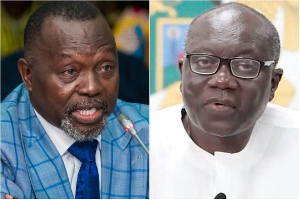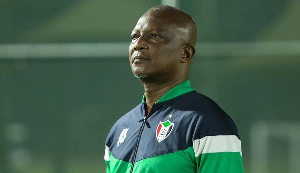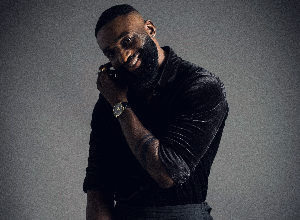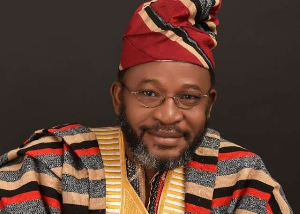By Kwame Okoampa-Ahoofe, Jr., Ph.D.
Garden City, New York
August 19, 2014
E-mail: okoampaahoofe@optimum.net
He voluntarily insinuated himself into the proverbial eye-of-the-storm of Ghanaian politics, and for twenty years ruled the roost like the absolute Third-World strongman that he veritably became. And in his mad rush for unelective power, what the then-Chairman Jerry John Rawlings had failed to realize was the fact that once he had opened Pandora's Box, he had absolutely no control over its explosive contents.
In other words, it is flagrantly preposterous for the former leader of the sanguinary Armed Forces Revolutionary Council (AFRC) and the so-called Provisional National Defense Council (PNDC) to presume to predetermine how he ought to be perceived and written about by students and scholars of postcolonial Ghanaian history.
Consequently, the decision by the former president to seek an injunction against the launching of a book titled J. J. Rawlings and the Democratic Transition in Ghana, authored by Prof. Kwaku Danso-Boafo, former Ghana High Commissioner to the United Kingdom of Great Britain, is simply ludicrous (See "Rawlings Sues Prof. Kwaku Danso-Boafo Over Book" MyJoyOnline.com 8/19/14).
It is ludicrous because Ghana's longest-reigning dictator wants to play censor, editor and publisher of this authorized version of his political biography. He claims that per a 2006 agreement, the author of the aforementioned book was obligated to submit a copy of the completed manuscript for examination prior to publication and distribution. As far as I have been able to ascertain, largely from media accounts, it well appears that Prof. Danso-Boafo religiously fulfilled his end of the bargain. He had, as pre-agreed, submitted a copy of the finished manuscript to the eponymous subject of the same.
What counsel for Chairman Rawlings may be required to prove in court, is whether the aforesaid agreement also contained a clause that permitted Chairman Rawlings to establish his own team of "experts and P/NDC ideologues" to determine whether the book met some peculiar vainglorious standards established by the subject of the book. This is rather bizarre, and I hope it does not appear in the aforesaid agreement. If it does, then Prof. Danso-Boafo may well have seriously compromised his scholastic credibility. Conversely, if it does not, then Chairman Rawlings' case may very well be dead-on-arrival.
If, indeed, he feels so morbidly aggrieved by the treatment of his political achivements and failures by Prof. Danso-Boafo, then, of course, the most constructive approach would be for Chairman Rawlings to have a scholarly review of the book authored and published by his handpicked team of scholars, highlighting precisely aspects of the book that are fraught with historical and scholastic inaccuracies. This could then be followed up with a book-length rejoinder proposing to authoritatively set the records straight.
But, perhaps, even more significantly, Chairman Rawlings needs to be apprised of the fact that while, indeed, the book J. J. Rawlings and the Democratic Transition in Ghana has him as its protagonist, nevertheless, the owner of the story is unquestionably the author, to wit, Prof. Kwaku Danso-Boafo. It is his inalienable right to decide on which events warrant both the selection and the telling of the same.
The author also has an unimpeachable right to decide what constitutes the objective truth and reality of the Rawlings story. If he deems the author to have maliciously maligned or defamed him, then, of course, Chairman Rawlings could promptly sue for redress.
________________________________________________________
Opinions of Saturday, 23 August 2014
Columnist: Okoampa-Ahoofe, Kwame













